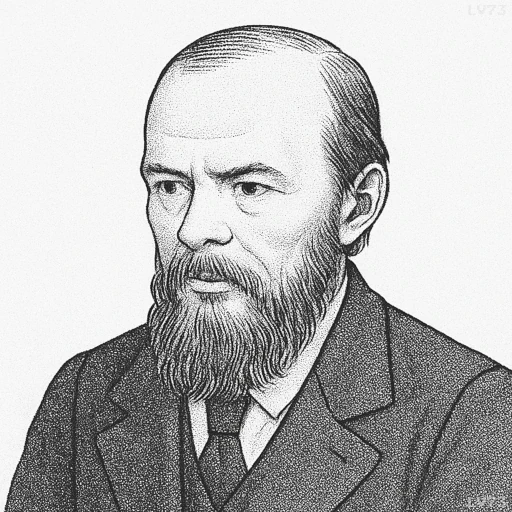“It is not possible to eat me without insisting that I sing praises of my devourer.”

- November 11, 1821 – February 9, 1881
- Born in the Russian Empire
- Novelist, philosopher
table of contents
Quote
“It is not possible to eat me without insisting that I sing praises of my devourer.”
Explanation
Dostoevsky’s quote can be understood as a critique of the power dynamics inherent in human relationships, particularly the way those in positions of power demand gratitude or praise from those they oppress or control. The phrase “eat me” is metaphorical, suggesting that to be consumed, used, or dominated by another is to be in a position where one must acknowledge or even celebrate the very force that oppresses or subjugates them. This reflects the paradox of power, where the victim is expected to express gratitude or loyalty toward the one who has harmed or controlled them. Dostoevsky often explored themes of power, coercion, and the psychological consequences of subjugation, and here, he highlights the irony of a system where the oppressed are not only rendered powerless but are also compelled to voice their obedience or praise.
This idea mirrors Dostoevsky’s broader concerns with social and moral hierarchies, especially in the context of corrupt systems where those in power often manipulate the emotions of their subordinates or victims. The idea of being “eaten” could symbolize the destructive influence of oppressive forces—whether it be an authoritarian regime, an abusive relationship, or a stifling societal structure—that demands not just obedience, but also reverence from those it subjugates. Characters in Dostoevsky’s works, like the underground man in Notes from Underground or Raskolnikov in Crime and Punishment, are often caught in such situations, wrestling with their need for acknowledgment from society while simultaneously resenting the very systems that demand such submission.
In the modern world, this quote resonates with the psychological and sociopolitical mechanisms at play in both individual and collective power structures. For example, in corporate environments, political systems, or authoritarian regimes, individuals or groups who are dominated may be forced to not only accept their position of powerlessness but also to celebrate or endorse the very systems that oppress them. In capitalist or consumerist societies, we often see individuals being “devoured” by economic systems that demand loyalty or gratitude from those who benefit the least from it, reinforcing a cycle where the marginalized are both exploited and required to praise the system that perpetuates their suffering. Dostoevsky’s quote thus challenges us to reflect on the ways in which power dynamics shape our relationships and society, and how subjugated individuals are often coerced into celebrating their own oppression.
Would you like to share your impressions or related stories about this quote in the comments section?



